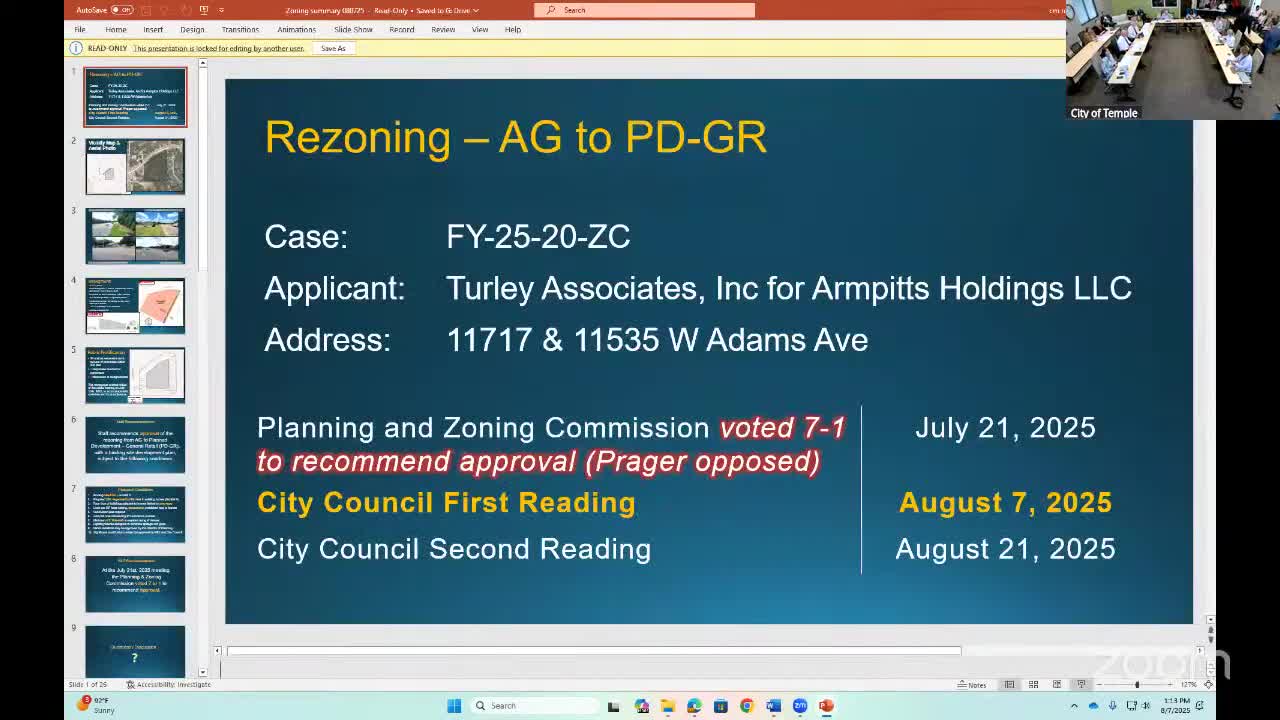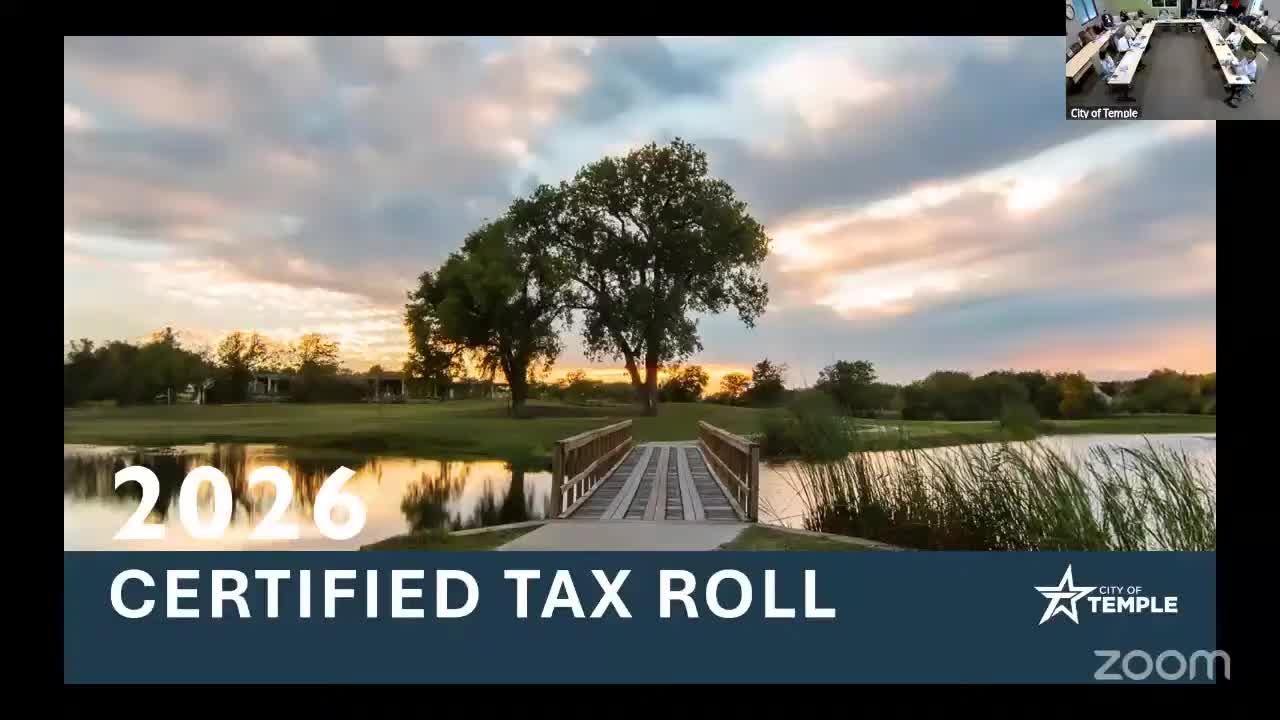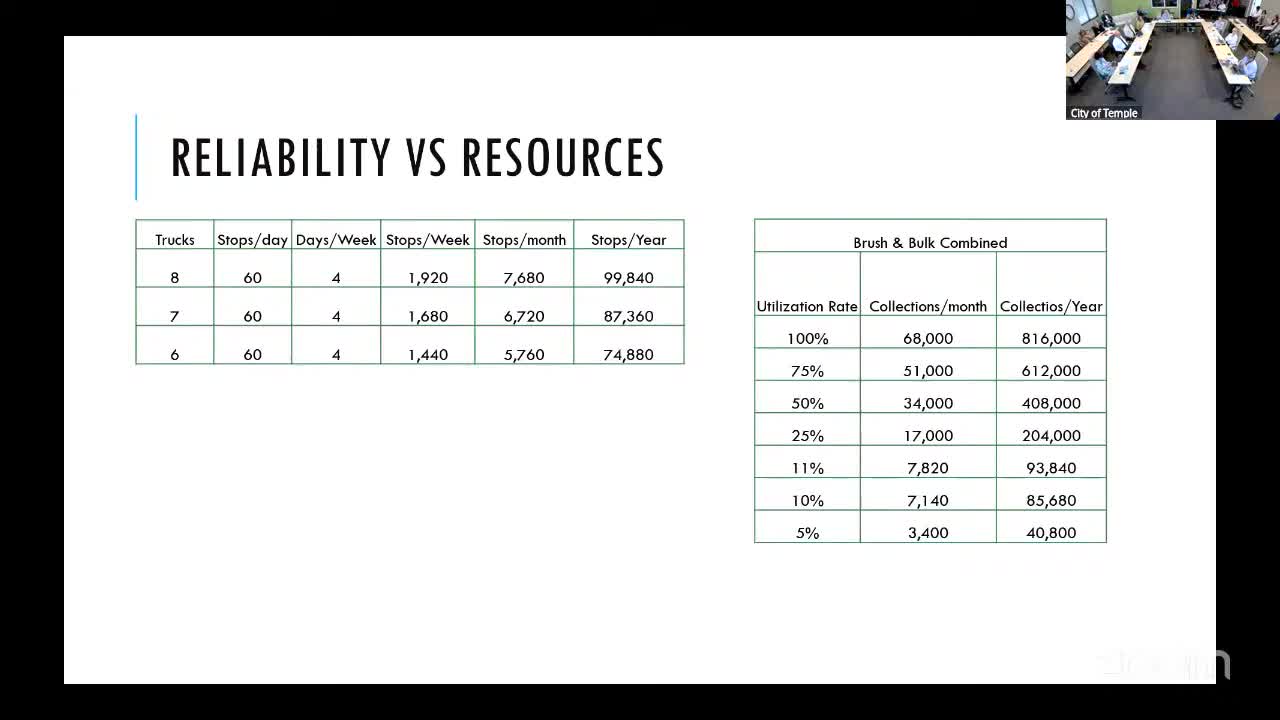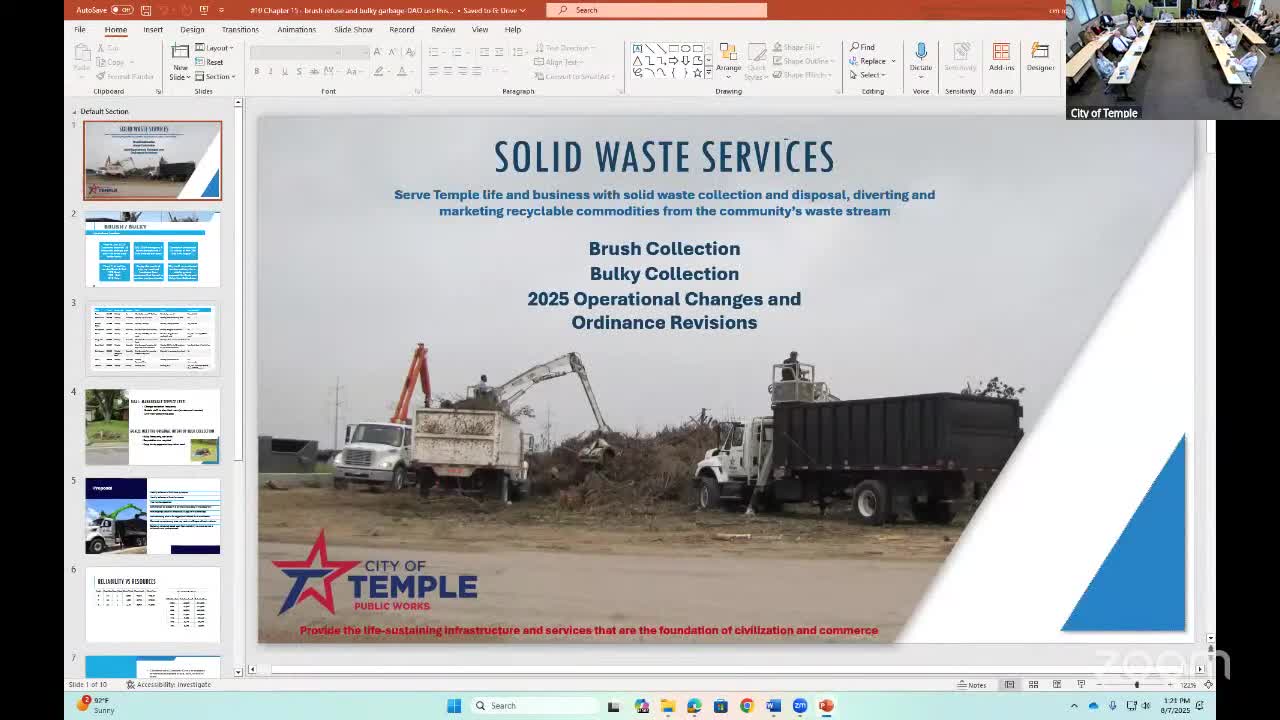Article not found
This article is no longer available. But don't worry—we've gathered other articles that discuss the same topic.

Council staff recommend approval of West Adams planned development; Hogan Road site plan revised for church

Temple proposes utility rate increases as multi‑year wastewater capital plan emphasizes sewer overflow fixes

Temple staff propose FY2026 budget that would raise maintenance tax rate to 69.99¢; council asked for follow-up

